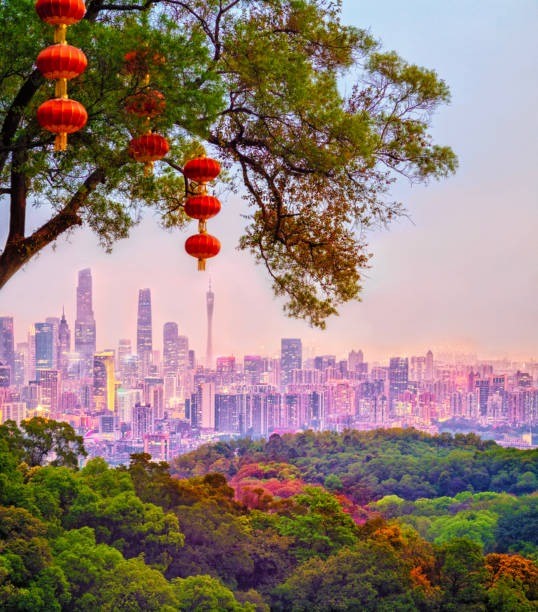Siliguri, often affectionately called “Slinguri” by locals, is a vibrant city nestled in the foothills of the Himalayas in the Indian state of West Bengal. It serves as a critical junction connecting several northeastern states, making it a hub for tourism and commerce. This article explores the many facets of Siliguri, from its rich biodiversity to its bustling marketplaces.
Introduction to Siliguri
Siliguri is strategically located, acting as a gateway to the northeastern states of India, as well as neighboring countries like Bhutan, Nepal, and Bangladesh. This geographical advantage has turned Siliguri into a bustling trade and transit point. Despite its rapid urbanization, the city is surrounded by lush greenery and picturesque landscapes.
Major Attractions in Siliguri
ISKCON Siliguri, Sri Sri Radha Madhavsundara
The ISKCON temple in Siliguri is a significant religious site, attracting visitors with its peaceful ambiance and intricate architecture. The temple offers a spiritual retreat for those looking to escape the hustle and bustle of city life.
Bengal Safari
For wildlife enthusiasts, Bengal Safari is a must-visit. This park, officially known as the North Bengal Wild Animals Park, is part of the Mahananda Wildlife Sanctuary. Visitors can see a variety of animals, including tigers, leopards, and deer, in their natural habitat.
Hong Kong Market
A trip to Siliguri is incomplete without a visit to the Hong Kong Market. Known for its wide array of imported goods and international brands, this market is a shopper’s paradise. Bargaining is a common practice here, allowing visitors to snag great deals on electronics, clothing, and more.
Sed-Gyued Monastery
The Sed-Gyued Monastery, located in Siliguri, is a center for Buddhist learning and meditation. Despite being destroyed and later rebuilt, it remains a place of tranquility and spiritual reflection, drawing visitors from all over the world.
Savin Kingdom
Savin Kingdom is an amusement park set amidst serene tea farms, offering a variety of rides and attractions for both children and adults. The park features water slides, thrill rides, and a beautifully themed castle, making it a perfect destination for a family outing.
Chilapata Forest
The Chilapata Forest, located near Siliguri, is a dense forest rich in wildlife. It serves as an elephant corridor between the Jaldapara National Park and the Buxa Tiger Reserve. Visitors can explore the ruins of ancient forts, enjoy Tonga rides, and experience the lush greenery of the forest.
Tea Gardens
Siliguri is surrounded by verdant tea gardens, offering visitors a chance to take leisurely walks, observe the tea-making process, and sample fresh tea. These gardens are not only a treat for the eyes but also provide a unique cultural experience.
Transport and Accessibility
Siliguri is well-connected by road, with several major highways passing through the city. The Tenzing Norgay Bus Terminus serves as a major hub, providing connectivity to various cities and towns in the region. The city’s strategic location makes it easily accessible from different parts of India and neighboring countries.
Flora and Fauna
The forests around Siliguri are home to a diverse range of flora and fauna. The Mahananda Wildlife Sanctuary is famous for its population of Indian elephants, tigers, and various bird species. The region’s rich biodiversity makes it a haven for nature lovers and wildlife enthusiasts.
Cultural Heritage and Festivals
Siliguri is a melting pot of cultures, reflected in its vibrant festivals and traditions. The city celebrates various festivals with great enthusiasm, including Durga Puja, Diwali, and Makar Sankranti. The diverse population of Siliguri, comprising Bengalis, Marwaris, Biharis, and others, contributes to the rich cultural tapestry. These festivals are marked by elaborate decorations, cultural performances, and community feasts, showcasing the unity in diversity that defines Siliguri.
Educational and Research Institutions
Siliguri is also known for its educational and research institutions. The city houses several reputable schools and colleges, making it a center for education in the region. North Bengal University, located nearby, is a major institution offering various undergraduate and postgraduate courses. Additionally, the presence of research centers and specialized institutions, such as the Indian Statistical Institute and the Central Inland Fisheries Research Institute, highlights Siliguri’s role in academic and research advancements.
Economic Significance
The economy of Siliguri is diverse, with significant contributions from trade, tourism, and tea production. The city is a crucial trading hub due to its proximity to international borders. The tea industry, with numerous tea gardens in and around Siliguri, plays a vital role in the local economy, producing some of the finest teas in India. Tourism is another major economic driver, attracting visitors to its natural beauty, wildlife, and cultural heritage.
Frequently Asked Questions (FAQs)
What makes Siliguri a significant city in India?
Siliguri’s strategic location as a gateway to the northeastern states and neighboring countries makes it a crucial hub for trade and transit.
What are the main attractions in Siliguri?
Major attractions include the ISKCON temple, Bengal Safari, Hong Kong Market, Sed-Gyued Monastery, Savin Kingdom, Chilapata Forest, and the surrounding tea gardens.
How can I reach Siliguri?
Siliguri is well-connected by road through major highways and the Tenzing Norgay Bus Terminus, providing easy access from various parts of India and neighboring countries.
What wildlife can be seen in the forests around Siliguri?
The forests around Siliguri, particularly the Mahananda Wildlife Sanctuary, are home to Indian elephants, tigers, leopards, and various bird species.
What is the best time to visit Siliguri?
The best time to visit Siliguri is during the cooler months from October to March, when the weather is pleasant and ideal for sightseeing and outdoor activities.





